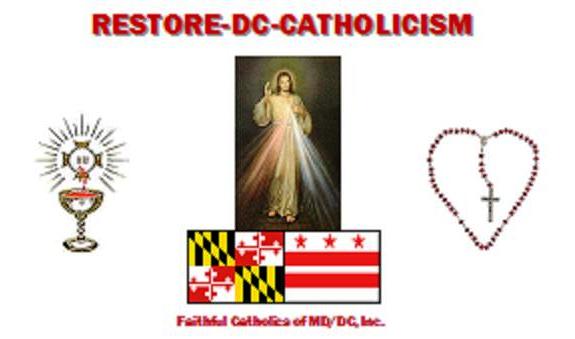Many of us heard of the story of Father Matthew Hood of the Archdiocese of Detroit. He had recently been sent a video of his infant baptism by his father. He watched that, then read a document from the Vatican that clarified what constituted the correct language for the Sacrament of Baptism. Recalling his viewing of the video of his baptism, he realized that invalid language was used during his baptism, effectively nullifying the baptism. The deacon used the language "we baptize" instead of the correct "I baptize".
Realizing that his invalid baptism also nullified his subsequent sacraments, including his ordination, he contacted his archdiocesan superiors about the matter. Very soon, he received all the sacraments correctly and he was a properly ordained priest. Father Hood and the archdiocese are now attempting to contact all those who believed they received sacraments from him, and from the deacon who committed the invalid baptism against Hood approximately thirty years ago. The alacrity and sense of purpose evinced by both Father Hood and the Archdiocese of Detroit in their efforts to correct that thirty-year old blunder.
My concern is not at all with them but with some Catholics who are commenting about the accounts of this situation. They display a lack of the most basic knowledge of their Faith, and an even more deplorable carelessness about the same. Most of those comments are along the lines of "well, God gives the grace anyway because everyone meant well". There is reason to doubt the validity of the assumption of meaning well, but for the sake of argument, let's just assume that's true, for the moment. At one time every Catholic knew that in order for a sacrament to be valid, three things must be present: form, matter, and intent. It seems like most understand the necessity of intent, but that's not all that is necessary. The other two are just as important, for the grace from sacraments is an objective reality. Form includes such things as words used, actions performed. When Father Hood was baptized, the deacon used language not prescribed by the Church. Form was deficient in that case, so Baby Matthew Wood remained unbaptized.
When it came time for the other sacraments that Catholics usually receive as they are growing, i.e., Confession, Communion, Confirmation, they too were invalid for Father Hood because valid matter was lacking - a baptized Catholic. Similarly, his ordination was also invalid. Not being a validly ordained priest, he could not confer sacraments as again matter lacked - a validly ordained priest. Who knows how many hundreds of confessions and marriages were invalid? Of course, none of those recipients were guilty of any sacrilege (including those who may have received communion after attempting to confess mortal sins to then-Mr Hood) for they acted in good faith. But no sacramental graces were conferred.
Another common excuse for pooh-poohing the need for proper form is that "God is not bound by man-made rules". The obvious fallacy here is that the "rules" are not "man-made". They were originated by Our Lord Himself through His Church to convey spiritual realities. When a priest or deacon says the words "I baptize you", he is acting as an "alter Christus" who would have spoken in the singular. Whether or not God is "bound" is not the issue. We, His Church, are, and we must obey that.
So the deviancy of one deacon, through one invalid baptism, had a detrimental effect on the spiritual lives of hundreds of people. It is reasonable to assume that he botched other baptisms, creating similar ripple effects. I pray that the efforts of the Archdiocese of Detroit and of Father Hood to find these people are successful. If nothing else, this should show the dangers that one rogue deacon can cause, and the need for more traditional Catholic education.









Speaking of sacramental rubrics, and noting that until 2007 NovusOrdo had 'for all' and not 'for many' as part of form for consecrating chalice, are we to conclude that use of 'for all' nullified confection of Blessed Sacrament from about 1970 until 2007?
ReplyDeleteJMJ
ReplyDeleteIs the deacon going to be held responsible and penalized in some way? +
Ademar, I believe said deacon is retired.
DeleteWhat about Montini tinkering with the Ordination Rites?
ReplyDeleteThere are 4 things necessary: Valid matter, valid form, valid intention, and a valid minister. In the case of Baptism, it can be any human being as long as the other three are present.
ReplyDeleteI believe that with Fr. Hood the issue was the form; form includes among other things the words and movements. Since the deacon did not use the proper form (wording) the baptism was invalid. As were the other sacraments because baptism is the foundation onto which the others are built. I would hate to be the person appointed to untie this tragically massive knot. How many baptism did the deacon do over the years? Who is going to contact all of the parents and let them know that all the other sacraments their children celebrated are invalid? What a mess!
DeleteSorry not related to article, but noticed Father Peter Daly of DC Archdiocese endorsed Biden
ReplyDeletehttps://www.faith2020.org/biden-harris